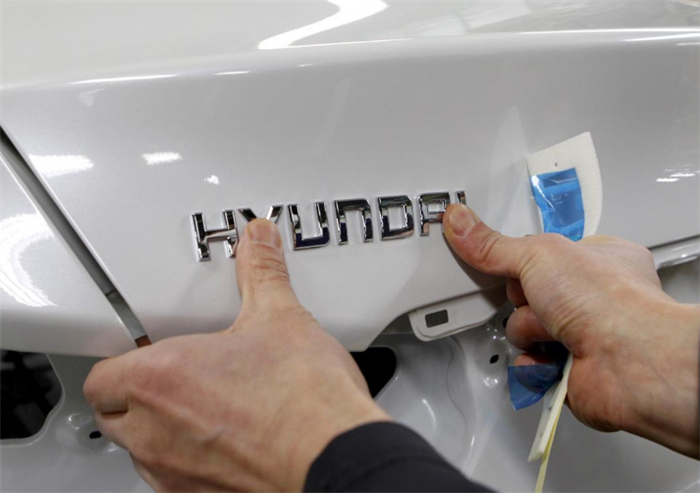According to foreign media reports, due to the stalemate in salary negotiations, on July 2, local time, Hyundai Korea Labor Union said that nearly 3/4 of the 44,782 voters voted for the strike. The move will increase the likelihood that modern hot-selling SUVs will be discontinued. At the same time, the company is facing the impact of potential import tariffs in the United States, and the vote to strike is undoubtedly worse for the company. Subsequently, on July 3, local time, Hyundai Motor's share price fell 2.8%, the lowest since April 2010.
In the past six years, Hyundai Motor Korea’s trade unions have voted every year. This year, the union asked for a monthly salary increase of 5.3% and asked for a total performance bonus of 30% of the company's 2017 net profit. The union opened the salary negotiations on May 3 this year. Subsequently, the union said that the salary increase and bonuses proposed by Hyundai Motor did not meet expectations and they withdrew from the negotiations at the end of June.

According to the internal records of the trade unions learned by foreign media, trade union executive Ha Eon-tae said in the salary negotiations that “the business environment is very difficult and the net profit continues to decline. We have considered the Sino-US trade war and the US potential tariff policy. The impact of the salary proposal." Hyundai Motor has not commented on this.
In the US and China's sluggish sales, the company's net profit in the first quarter fell to the lowest in nearly six years. Analysts said that although the company's car sales in China gradually recovered in the second quarter, its sales in the US will remain weak, affecting revenue.
According to Cho Soo-hong, an analyst at NH Investment Securities Co., Ltd., “Although the strike will help reduce the inventory of some low-selling cars, it will disrupt the production of hot-selling SUVs. Profits are falling and it is difficult for companies to give generous bonuses. The potential tariffs may force Hyundai to increase its production in the United States, thereby reducing Hyundai’s production in South Korea.†At the weekend, Hyundai Motor said that up to 25% of the US tariffs “will cause a devastating blow to Hyundai’s cars†And increase its production costs in the United States by about 10%.
In addition, in June of this year, Hyundai Motor Co. submitted a letter of intent to consider investing in a car manufacturing foundry in Gwangju, southwestern Korea, which triggered strong opposition from the union, which worried about job security and wages.
Hyundai Motor Korea’s trade union said in a statement that “the Hyundai Motor Union will participate in negotiations as requested by the management. We have not been able to narrow the differences on key issues, so it is difficult to reach a preliminary agreement easily.â€
ZAMAK is a family of alloys with a primary base metal of zinc and alloying elements of aluminium, magnesium and copper. Zamak alloys are part of the zinc aluminium alloy family. ZAMAK alloys are commonly used for Zinc Die Casting applications.It is applied to castings that do not require high mechanical strength, such as toys, lamps, decorations, and some electrical components. Die Casting is a metal casting process characterized by the use of a mold cavity to apply high pressure to the molten metal. Molds are usually machined from higher strength alloys, some of which are similar to injection molding.
Zamak Die Casting,Pressure Die Casting,High Pressure Die Casting,Low Pressure Die Casting
Chongqing Jin Te Rui Machine Co.,Ltd , https://www.cncjtr.com